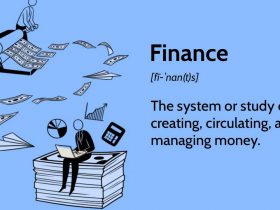The way that you handle credit can have a significant impact on your future eligibility for loans or credit cards. That¡¯s because, in the UK, credit reference agencies keep track of consumer financial histories. Lenders are provided with data to form the basis of lending judgements – to extend credit or not. Not everyone understands the way that the system works, especially when it comes to credit scoring and credit rating ¨C so, what¡¯s the difference between the two?

Need more detail? Read our “Ultimate Guide to Improving Your Credit Rating”
Sorting out the credit jargon
Everyone in the UK over 18 has a credit file that is accessible via one of the main credit references agencies ¨C Experian, Equifax and Callcredit (also known as TransUnion). It¡¯s important to understand that there is no such thing as a universal credit score i.e. one that applies across the board. Each credit reference agency will provide a different score, based on a different scoring system, and lenders will compile their own. Many of the terms that are used to talk about credit reports tend to be used interchangeably so, what do they all mean?
- Credit file. Your credit file is where all of your credit history is contained ¨C if you access your credit file you will be able to see your entire credit history as well as the credit rating that you¡¯ve been given by the agency that you¡¯re using to make the check.
- Credit history. This is essentially all of your previous interactions with credit of any kind, going back six years. So, this could be evidence of an account with an energy provider that you had at university or recent transactions and repayments on a loan or a credit card. Your credit history will include current bank accounts and personal details, as well as records of past and present debts within that time-frame.
- Credit scoring. Your credit score is the number that is assigned to you based on the contents of your credit report. Credit scoring is the system that is used to determine what that number should be for each individual UK consumer. However, as there is no single system, each one of the different credit scoring agencies will use their own scale and criteria to do it. For example, if you are looking to nurture an ¡°excellent¡± credit score, you¡¯ll need to aim for 800 on Experian while you can achieve this with 660 based on the Equifax criteria. It¡¯s important to note that lenders have their own scoring systems ¨C they don¡¯t use the scores that are provided by the credit rating agencies. Despite the fact that each system is different, credit scoring tends to work with a lot (but not all) of the same data, such as how well you¡¯ve managed borrowing in the past.
- Credit rating. Your credit rating is the term most often used to describe the score that you¡¯ve been given on the basis of your credit history. You won¡¯t know what rating you have been given by a lender but you can see how the different credit agencies have rated you. Most agencies offer a way to check your credit rating for free at least once (e.g. Experian’s free credit score). Make sure you know the different scales involved for each rating system so that you can see where your score puts you in terms of being an attractive borrower.
Why is it important to understand this?
If you want to make an application for any type of credit you will need to know what your credit history is going to look like to a lender. The credit rating you have is a good guide as to the judgements that a lender is likely to make when it comes to whether to approve an application for something like a loan or a mortgage. A so-called “bad credit history” is where your file contains records that depress your score and as a result credit may become more problematic or more expensive.
There are lots of different factors that can affect your credit rating, including:
- Keeping up with repayments on loans and credit cards
- The amount of debt that you have, compared to how much credit is available
- How much you earn
- Any issues you¡¯ve had with credit in the past, such as County Court Judgements against you or bankruptcy proceedings
- Whether you¡¯re only making the minimum payments each month
- Whether you are on the electoral roll
Terms that relate to your credit history are often used interchangeably, which is why it can be so confusing to work out what lenders really need when you¡¯re applying for credit. Ultimately, your credit rating (or credit score) won¡¯t guarantee that you¡¯ll be accepted for specific credit it just provides a guide. What¡¯s more crucial is ensuring that your credit history is positive and that you are borrowing affordably and responsibly.












Leave a Reply